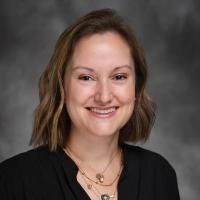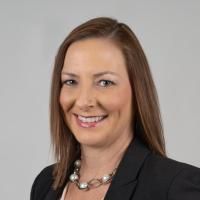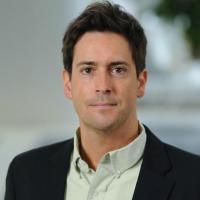The impact of hearing loss on trajectories of depressive symptoms in married couples.
Date
2023-03
Journal Title
Journal ISSN
Volume Title
Repository Usage Stats
views
downloads
Citation Stats
Attention Stats
Abstract
Hearing loss is a prevalent chronic stressor among older adults and is associated with numerous adverse health outcomes. The life course principle of linked lives highlights that an individual's stressors can impact the health and well-being of others; however, there are limited large-scale studies examining hearing loss within marital dyads. Using 11 waves (1998-2018) of the Health and Retirement Study (n = 4881 couples), we estimate age-based mixed models to examine how 1) one's own hearing, 2) one's spouse's hearing, or 3) both spouses' hearing influence changes in depressive symptoms. For men, their wives' hearing loss, their own hearing loss, and both spouses having hearing loss are associated with increased depressive symptoms. For women, their own hearing loss and both spouses having hearing loss are associated with increased depressive symptoms, but their husbands' hearing loss is not. The connections between hearing loss and depressive symptoms within couples are a dynamic process that unfolds differently by gender over time.
Type
Department
Description
Provenance
Subjects
Citation
Permalink
Published Version (Please cite this version)
Publication Info
West, Jessica S, Sherri L Smith and Matthew E Dupre (2023). The impact of hearing loss on trajectories of depressive symptoms in married couples. Social science & medicine (1982), 321. p. 115780. 10.1016/j.socscimed.2023.115780 Retrieved from https://hdl.handle.net/10161/28656.
This is constructed from limited available data and may be imprecise. To cite this article, please review & use the official citation provided by the journal.
Collections
Scholars@Duke

Jessica Sayles West

Sherri L Smith
Dr. Smith's core research focuses on improving the assessment and treatment of hearing loss in older adults. Specifically, her work centers on comparing the effectiveness of current hearing interventions, developing new, innovative clinical tools, and examining alternative service-delivery approaches that help patients reach their individual hearing goals and improve their quality of life.
Dr. Smith also collaborates with multi-disciplinary teams to better understand the impact of hearing loss on other health conditions and services. Current projects involve understanding the impact of hearing loss on surgical outcomes in older adults, determining the mechanisms that may explain the independent association between hearing loss and falls in older adults, and comparing different models of hearing screenings for older adults in primary care settings.

Matthew E. Dupre
Dr. Dupre is a Professor in the Department of Population Health Sciences and the Department of Sociology. He is also a Senior Fellow at the Center for Aging and Human Development. Dr. Dupre is a medical sociologist who specializes in research on aging and the life course, health disparities, and cardiovascular disease (CVD) outcomes in older adults. As an interdisciplinary researcher, he has focused on several lines of work: (i) race and socioeconomic disparities in trajectories of chronic disease and mortality, (ii) the role of social stressors in the onset and progression of CVD, (iii) the development of adaptive risk-assessment models, and (iv) the social determinants of healthy aging in China. A unifying thread in his program of research is the application of life course theory to clinical outcomes research, the integration of population- and patient-level data, and the use of innovative statistical methods to better understand how exposure to social factors shape inequalities in health and aging. Dr. Dupre is the Editor-in-Chief of the Encyclopedia of Gerontology and Population Aging (2021), co-editor of the book Disability Trends at Older Ages (in press), and has published in the leading journals of medicine, epidemiology, sociology, and public health. He has served as an advisor to the National Academy of Sciences' Committee on Population Aging and currently serves on the editorial boards for multiple journals.
Areas of Expertise:
Medical Sociology; Population Health; Social Epidemiology; Cardiovascular Disease; Aging; and Quantitative Methods
Unless otherwise indicated, scholarly articles published by Duke faculty members are made available here with a CC-BY-NC (Creative Commons Attribution Non-Commercial) license, as enabled by the Duke Open Access Policy. If you wish to use the materials in ways not already permitted under CC-BY-NC, please consult the copyright owner. Other materials are made available here through the author’s grant of a non-exclusive license to make their work openly accessible.
